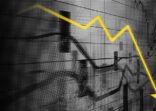Taie Wang, State Street Global Advisors
Fund managers do not have a standardised approach to selection of responsible investments, leading to different investible universes, Wang said. Therefore, overcrowding into the same assets seems unlikely.
The loose definition of ESG also has an impact on passive products, she said. Index-tracking products that have been created using ESG criteria can drift away from the index they are intended to track, impacting performance.
“For traditional cap-weighted passive products, the objective is to replicate a designated benchmark with a minimal tracking error. With such a [cap-weighted] product nature, there is not much you can do with ESG principles.”
A manager of an ESG-focused ETF intending to track a cap weighted index may find ESG scoring is low among some of the top weighted companies. Therefore, weighting would have to be adjusted to address the ESG scoring, increasing tracking error.
Globally, there are about 270 sustainable index funds and exchange-traded funds with an aggregate assets of $102bn, according to Morningstar data.
Wang believes smart beta products are more effective when applying ESG principles than cap-weighted passive products.
She cited an example of constructing a smart beta product emphasizing the quality factor. “Some research finds that ESG and the quality factor have a high correlation to each other. But adding ESG considerations into a factor investing portfolio may bring exposure to the non-financial aspects of a quality company.”
However, not all companies with solid ESG profiles are a good fit for all types of factor investing, she said. In momentum strategies, large cap companies with the best ESG scores typically lack momentum, for example.
Muddled ESG
Investors are often confused by ESG investing because it has no universal definition or standard methodology.
Gerard Lee, CEO of Singapore’s Lion Global Investors, told FSA that ESG investing is usually understood to be synonymous with corporate governance.
Wang added that it can therefore be a challenge explaining ESG to investors.
“It is easy to understand the aspects of environment, social and governance, but different people may have different interpretation and measurement for each pillar of ESG,” she said.
“For the same company, the results of their ESG scoring can vary massively among the data vendors in the market.”
Asia ESG funds
In Hong Kong and Singapore, there are relatively few funds with an ESG/sustainable investment focus.
Among all actively-managed funds authorised for sale in Hong Kong and Singapore, 111 products with a sustainable focus are available — about 2% of the total universe, according to FE data.
In terms of passive products, nine ETFs with an ethical/sustainable investment focus are authorised by Singapore’s regulator for sale to professional investors, plus one for sale to retail investors, the CIMB S&P Ethical Asia Pacific Dividend ETF.
Hong Kong, however, does not have any registered for sale.

















